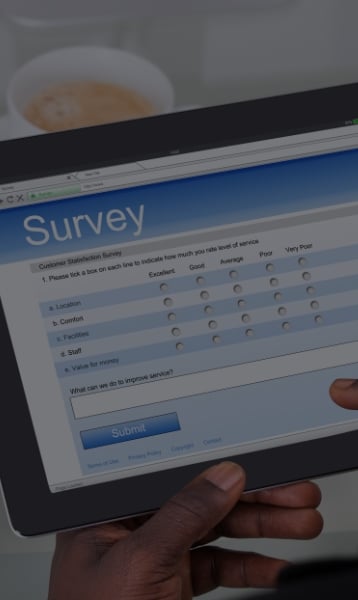This interactive portal improves the analytic experience so you can easily interact with data.
IN THE NEWS
Read our latest press releases and check out where we've been mentioned
IBI has a long history as a credible and unbiased source
For press inquiries, email Jim Huffman at jhuffman@ibiweb.org .
Recent Press Releases
IBI In The News
HRDive | July 25, 2024
HR can help create an emotionally healthy culture - but it can't do so alone, McLean & Co. says
-
The report, by health and productivity research non-profit Integrated Benefits Institute, found that employers improved retention by showing emotional intelligence and implementing tangible strategies, such as flexible work options, increased communication, employee development programs and a focus on diversity and inclusion.
BenefitsPRO | July 4, 2024
Strong belonging at work linked to better employee health, study finds
-
Employees' sense of belonging in the workplace is important as ever and a new study by the Integrated Benefits Institute (IBI) recently shared data that confirms the positive benefits of inclusion in the workplace.
Achievers | June 24, 2024
How to attract and retain top talent in 2024
-
According to research by the Integrated Benefits Institute (IBI), 61% of employers struggle to retain their employees while 73% have difficulty attracting them. The institute also found the cost of turnover to be equivalent to 1-2 times an employee’s salary — which becomes a significant expense if turnover is high.
TLNT | April 30, 2024
Why every company needs to train staff how to leave
-
Studies show that a staggering 61% of employers struggle with retaining their workforce, but many employers still don’t proactively address the underlying issues that lead to people leaving.
Supply Chain Dive | April 15, 2024
Employee sentiment rebounds, likely reducing exits, consulting firm says
-
When it comes to retention, more than half of employers have pointed to employee satisfaction, mental health and emotional support as top priorities, according to a January report from the Integrated Benefits Institute.
Employee Benefits News | April 15, 2024
40% of Americans are delaying healthcare visits despite having insurance
-
According to the Integrated Benefits Institute, poor employee health costs businesses $575 billion a year.
Reworked | April 12, 2024
Return-to-Office Mandates: Layoffs in Sheep's Clothing
-
Most employees prefer remote or hybrid work. Nearly 50% said they would quit their jobs if their employer mandated a full-time RTO policy, according to the Integrated Benefits Institute.
Reworked | April 12, 2024
Return-to-Office Mandates: Layoffs in Sheep's Clothing
-
Most employees prefer remote or hybrid work. Nearly 50% said they would quit their jobs if their employer mandated a full-time RTO policy, according to the Integrated Benefits Institute.
Reworked | January 24, 2024
Employee Experience: A Priority Until It's Not
-
51% of employers still regard employee satisfaction as their most important goal, according to the Integrated Benefits Institute. That’s followed by cost mitigation/revenue generation, at 41% — a 10-point difference.
The Telegraph | January 24, 2024
What working from home does to your career - and bank balance
-
Fully remote and hybrid work are associated with an increased likelihood of anxiety and depression symptoms – 40pc and 38pc respectively – compared with in-person work (35pc), according to analysis by the Integrated Benefits Institute, a US nonprofit research organisation.
Sedgwick | January 22, 2024
Targeting programs on another level: Paths to improving workforce well-being and productivity
-
The costs associated with absenteeism are steep. In 2020, the Integrated Benefits Institute (IBI) found that employee absences cost U.S. employers around $575 billion, or $3,900 per employee.
HRO Magazine | January 22, 2024
Over Half of Employers Cite Employee Satisfaction as Most Important Goal
-
To better understand the value of products and programs that support employee health, the Integrated Benefits Institute conducted a mixed methods research study analyzing survey data from 305 HR professionals in the United States alongside qualitative insights.
HR Dive | January 16, 2024
Report: 51% of organizations say employee satisfaction is top goal
-
Employers must balance quality programming with cost management and account for diverse needs, suggests research from the Integrated Benefits Institute.
All Work | January 4, 2024
51% of Employers Think Employee Satisfaction is their Organization's #1 Goal
-
A recent study published by the Integrated Benefits Institute (IBI), which analyzed survey data from 305 HR professionals in the U.S., found that 51% of employers now view employee satisfaction as their organization’s most important goal.
Advisor Magazine | January 3, 2024
Measuring the Value of Employee Health & Well-Being
-
To better understand the value of products and programs that support employee health, the Integrated Benefits Institute conducted a mixed methods research study analyzing survey data from 305 HR professionals in the United States alongside qualitative insights.
HR Dive | January 3, 2024
More than a quarter of workers say they're ready to leave their current job
-
Employee attraction and retention efforts require more emotional intelligence to focus on employee well-being and satisfaction, according to a report from The Integrated Benefits Institute. More employees are looking for a holistic package of well-being, meaningful work and customizable benefits, including flexible work options, increased communication and employee development programs.
BenefitsPRO | December 19, 2023
Long COVID, chronic conditions significantly impacting productivity in American workers
-
The effects of long COVID, as well as certain chronic conditions, are significantly impacting worker productivity, according to a new analysis by the Integrated Benefits Institute (IBI) — a nonprofit organization dedicated to health and productivity research.
EHS Today | December 15, 2023
Long COVID, Chronic Conditions Double Absence Rate
-
An analysis by The Integrated Benefits Institute looked at the impact of long COVID and some chronic conditions. The chronic conditions highlighted in the analysis include cancer, cardiovascular disease, diabetes, obesity, musculoskeletal, respiratory, and mental health conditions.
US News & World Report | November 10, 2023
How to Navigate a Hybrid Work Environment
-
Hybrid work is associated with an increased likelihood of anxiety and depression symptoms compared to in-person work, according to a study by the Integrated Benefits Institute, a nonprofit research organization.
HR Dive | October 17, 2023
Do managers go into the office less often than their direct reports?
-
Almost half of workers surveyed by the Integrated Benefits Institute said they would quit their job or begin looking for a new job immediately if their employers mandated a full-time return to the office.
HR Dive | September 28, 2023
As a ‘child care cliff’ approaches, employers look to boost caregiver benefits
-
A recent Integrated Benefits Institute survey found that 47% of employees would either call it quits or begin looking for a new job if their employers mandated a full-time RTO policy.
HR Dive | September 19, 2023
Report: Baby boomers most likely to prefer flexible, remote work
-
At the same time, about half of employees said they would quit or look for another job if their company mandated a full-time return-to-office policy, per a report published last month by the Integrated Benefits Institute.
Carrier Management | September 7, 2023
Being Flexible Key to Talent Retention
-
Those organizations offering flexibility in work schedules, such as work-from-home and hybrid work options, will win in today’s competitive market, according to a new report by Integrated Benefit Institute.
HR Dive | September 6, 2023
How coworking in DC reflects the latest RTO push
-
During the hybrid work era, about one-third of workers said they’d quit if they were required to return to the office. And despite RTO mandates rapidly increasing in popularity, almost half of workers would quit if their employer issued an RTO mandate, per an August 2023 report from the Integrated Benefits Institute.
SHRM | September 5, 2023
As Summer Ends, Workers Head Back Into the Office
-
Analysis by the Integrated Benefits Institute (IBI), out earlier this month, found that almost half (47 percent) of employees indicate they would quit a job or begin looking for a new job immediately if their employer mandated a full-time return-to-office policy.
HR Dive | August 28, 2023
Hybrid jobs surge as remote jobs plummet
-
While about 22% of U.S. companies with remote-capable workers said they want employees to return to work, only 15% of those workers want to go back into the office, an August report by the Integrated Benefits Institute found.
ShiftShapers Podcast | August 28, 2023
A Deep Dive into the World of Healthcare Costs - with Kelly McDevitt
-
Ever wondered if your business is really understanding the true cost of healthcare? Join us as we pick the brain of Kelly McDevitt, the President of the Nonprofit Integrated Benefits Institute (IBI). With a whopping 40 years of industry experience, Kelly unpacks how IBI assists businesses in deciphering the often-complex healthcare costs beyond just medical and pharmacy expenses.
BenefitsPRO | August 17, 2023
Employers try new strategies as recruitment, retention struggles continue
-
A review of the relevant literature by the Integrated Benefits Institute found that employers are responding by offering greater flexibility with hybrid and remote work options; focusing on culture, diversity and inclusion; increasing communication with employees and encouraging employee feedback; and emphasizing employee development and growth.
HR Dive | August 11, 2023
What’s the best use of in-office time?
-
Various surveys seemingly show that employees do not want a full-time return to office. Nearly half of those surveyed by the Integrated Benefits Institute said they’d quit over such a mandate...
HR Dive | August 9, 2023
Nearly half of workers say they’d quit over full-time return-to-office mandates
-
About 47% of employees say they would quit their job or begin looking for a new job immediately if their employer mandated a full-time return-to-office policy, according to an Aug. 3 report from the Integrated Benefits Institute, a health and productivity research nonprofit.
SHRM | July 26, 2023
Employees Skipping Out on Wellness Checks
-
And recent analysis out from the Integrated Benefits Institute (IBI), an Oakland, Calif.-based nonprofit research organization, similarly found that more than half of employees (58 percent) delayed necessary medical care due to cost or insurance barriers.
HR Dive | July 20, 2023
Employee attraction and retention efforts need more emotional intelligence, study shows
-
The dynamics of employee attraction and retention have shifted significantly in recent years, requiring employers to prioritize employee well-being and satisfaction, according to a July 13 report from the Integrated Benefits Institute, a health and productivity research non-profit.
BenefitsPro | June 27, 2023
Delayed Care Continues After the Pandemic, Report Reviews Issues and Possible Solutions
-
A new report from the Integrated Benefits Institute (IBI) takes on the difficult problem of delayed care — and offers suggestions to companies on how to address this problem with their employees.
OPENMINDS | June 7, 2023
58% of Employees Delayed Necessary Care Due to Cost or Insurance Barriers
-
These findings were presented in “Effects of Delayed Care on the Workforce” by Candace Nelson, ScD, MA for the Integrated Benefits Institute (IBI). IBI contracted with a survey research firm to conduct a web-based survey nationally representative among employed adults ages 18 to 64 years in January 2023.
SHRM | June 5, 2023
Employees Are Delaying Health Care. Here's How Employers Can Help
-
More than half of employees (58 percent) delayed necessary medical care due to cost or insurance barriers, according to new analysis out from the Integrated Benefits Institute (IBI), an Oakland, Calif.-based nonprofit research organization.
EHS Today | May 29, 2023
Employees Delaying Medical Care for a Variety of Reasons
-
What impact has delayed care, due to the pandemic, had on employees and how can employers mitigate this? Let's look at a recent survey of 5,000 people conducted by Integrated Benefits Institute.
Yahoo Finance | May 26, 2023
More than Half of Employees Delayed Necessary Medical Care due to Cost, 42% Delayed due to No Appointments Available, According to Integrated Benefits Institute Analysis
-
In an effort to understand who is delaying care and why they have delayed care, health and productivity research non-profit Integrated Benefits Institute surveyed 5,003 employed individuals in the US.
HR Dive | May 10, 2023
US employees may be settling on hybrid work
-
Several studies, including one from the Integrated Benefits Institute, have also found a link between hybrid work and anxiety and depression.
HR Dive | April 21, 2023
Lack of hybrid work norms may cause workers to leave
-
In February, the Integrated Benefits Institute published research showing that workers in flexible models had an increased rate of anxiety and depression symptoms compared to in-person workers.
Training Industry | April 21, 2023
Harnessing L&D to Support Employees' Mental Health
-
IBI President Kelly McDevitt published an editorial on our recent analysis of mental health: According to the Integrated Benefits Institute’s recent analysis, fully remote (40%) and hybrid work (38%) is associated with an increased likelihood of anxiety and depression symptoms compared to in person (35%).
Buffer | April 21, 2023
Some Remote Workers Struggle With Leaving Home: Here's How We Handle it at Buffer
-
Another 2023 study by Integrated Benefits Institute also concluded remote and hybrid work is associated with an increased likelihood of anxiety and depression symptoms compared to in-person work.
Yahoo News | April 13, 2023
How to Enjoy Remote Work During the Warmer Months
-
In February, experts from Integrated Benefits Institute reported to Yahoo finance that remote work is linked to increased anxiety and depression. Overall anxiety and depression symptoms fell to 35 percent from 40 percent at the height of the pandemic according to the experts.
HR Dive | April 5, 2023
Hybrid workers appear to reap well-being benefits
- Lack of co-worker camaraderie may increase feelings of isolation as well; a recent study from the Integrated Benefits Institute found that remote and hybrid workers reported a higher rate of depression and anxiety.
Future of Business and Tech | March 22, 2023
Achieving Balance with Company Culture, Benefit Design, and Employee Wellbeing
- IBI Director of Communications Jennifer Santisi published an editorial on achieving balance with benefit design: The Integrated Benefits Institute’s recent analysis estimates that the cost associated with the loss of work hours due to COVID-19 is $213.1 billion, and the number of lost hours attributed to the pandemic totaled 6.6 billion.
SHRM | March 10, 2023
A Potential Downside to Remote Work? Higher Rates of Depression
- Fully remote (40 percent) and hybrid work (38 percent) are associated with an increased likelihood of anxiety and depression symptoms compared to in-person work (35 percent), according to an analysis by the Integrated Benefits Institute (IBI), an Oakland, Calif.-based nonprofit research organization.
Intelligent Health.tech | March 8, 2023
The COVID-19 Pandemic Cost Employers US$213 Billion
- The Integrated Benefits Institute (IBI), a nonprofit research and educational organisation focused on workforce health and productivity, analysed data from the US Current Population Survey (CPS) to estimate the number of lost hours attributed to the pandemic and the cost associated with the loss of work hours.
HR Dive | February 22, 2023
Remote, hybrid work linked to more anxiety, depression
- Workers had an increased rate of anxiety and depression symptoms if they were fully remote (40%) or hybrid (38%), compared to those who worked in-person (35%), according to a Feb. 20 report from health and productivity research non-profit Integrated Benefits Institute.
Human Resource Executive | February 22, 2023
Remote work and high rates of depression: What HR needs to know
According to new research from the Integrated Benefits Institute, based on a survey of nearly 500,000 employed Americans, symptoms of anxiety or depression have decreased overall since the height of the pandemic in 2020—from 40% to 35% of the sample.
Fortune | February 14, 2023
The return to the office could be the real reason for the slump in productivity. Here's the data to prove it
The Integrated Benefits Institute found in an October 2022 survey that employees who work remotely or in a hybrid environment reported being more satisfied (20.7%) and more engaged (50.8%).
SHRM | February 8, 2023
The Forced Return to the Office Leads to Quiet Quitting
The Integrated Benefits Institute found in an October 2022 survey that employees who work remotely or in a hybrid environment reported being more satisfied (20.7%) and more highly engaged (50.8%).
EHS Today | February 7, 2023
What do Employee Benefit Plans Look Like in 2023
IBI (Integrated Benefits Institute) recently released a report “Benefit Design and Workplace Policy” after surveying employers in the U.S. to see what the benefits landscape looks like today.
SHRM | February 6, 2023
Will Employers Bring Masks Back to the Workplace?
Recent research from the Integrated Benefits Institute pointed out the staggering impact COVID-19 has had on lost work hours. The Oakland, Calif.-based nonprofit research organization estimated that the cost associated with the loss of work hours from the pandemic was a staggering $167.4 billion in the pandemic's first year and $45.7 billion in its second year.
SHRM | January 25, 2023
COVID-19's Price Tag for Employers: $213 Billion
That figure comes from the Integrated Benefits Institute (IBI), an Oakland, Calif.-based nonprofit research organization, which estimates that the cost associated with the loss of work hours from the pandemic was a staggering $167.4 billion in the pandemic's first year and $45.7 billion in its second year.
BRINK News | January 23, 2023
Analysis: Covid Cost Employers $213 Billion in Lost Hours in the US
Training Industry | January 20, 2023
5 Strategies to Support Staff and Combat Quiet Quitting
EHS Today | January 18, 2023
Pandemic Took Heavy Toll on Productivity
The Integrated Benefits Institute (IBI), a non-profit research and educational organization focused on workforce health and productivity, analyzed data from the US Current Population Survey to estimate the number of lost hours attributed to the pandemic, and the cost associated with the loss of work hours.
Employee Benefits News | December 14, 2022
13 companies that expanded their benefits in 2022
BenefitsPRO | December 2, 2022
Disappearing benefits: subsidized childcare, financial wellness, tuition assistance
Entrepreneur | December 2, 2022
Is Remote Work Responsible for Quiet Quitting?
Harvard Business Review | November 29, 2022
When Inflation Rises, Health Outcomes Fall
HRTech Cube | November 21, 2022
40% of Employers Changed Benefit Plans During Pandemic
BenefitsPRO | November 4, 2022
Work from home poses challenges, but benefits are still greater
Ragan Workplace Wellness | October 31, 2022
Here's how flexible work arrangements support the remote and hybrid workforce
Forbes | October 21, 2022
Toxic Workplaces Could Damage Mental Health, Surgeon General Warns
Building Indiana | October 19, 2022
Ways to Measure Workplace Wellness Strategies
Future of Business and Tech | September 21, 2022
Retention, Satisfaction, Burnout, Oh My! What Does the Future of Employer Benefit Plans Look Like?
SHRM | August 10, 2022
Travel Benefits for Abortion Growing Quickly Among Employers
EHS Today | August 10, 2022
A Closer Look at Minority Mental Health Status
HR Dive | August 10, 2022
Indiana employers warn state's abortion ban may have talent repercussions
Bloomberg Law | August 4, 2022
Abortions Covered by Nearly Half of Surveyed Employer Plans
HR Dive | August 3, 2022
Employers can improve Black, Latino employees' healthcare perceptions, report finds
INC | July 14, 2022
3 Strategies for Supporting Family Caregivers at Work
TLNT | June 16, 2022
The double whammy of chronic conditions and Covid-19 on healthcare costs
SHRM | May 31, 2022
Arthritis Drives Health Care and Disability Costs
Collective Health | May 16, 2022
Productivity & healthcare: How benefits influence corporate performance
The Business Journals | May 16, 2022
Healthcare shouldn't be an emergency: How to help your employees use preventive care
Human Resource Executive | Mar 23, 2022
Number of the Day: telehealth usage
Intelligent CXO | Mar 21, 2022
Only 46% of workplaces offer health programs
BenefitsPRO | Mar 11, 2022
Virtual care use differs by gender, location, industry
People Matters | Feb 16, 2022
Less than half employers offer health programs: Report
Modern Healthcare | Feb 12, 2022
Making mental health a top priority is growing trend for employers, employees
BenefitsPRO | Jan 26, 2022
Report: Pandemic shakes up disability claims numbers for 2020
Archinect | Jan 13, 2022
New study reveals that pandemic-related absences cost employers nearly $1 billion per week
Staffing Hub | Jan 4, 2022
Employers Losing Nearly $1 Billion Per Week Due to COVID-19 Absences
HR Dive | Jan 4, 2022
Study: Pandemic-related absences cost employers nearly $1B per week
BenefitsPRO | Dec 29, 2021
Analysis: COVID-19 costs employers nearly $1B per week in lost time from work
Employee Benefit News | Dec 27, 2021
COVID is costing employers nearly $1 billion per week
Future of Business and Tech | Dec 27, 2021
Why Robust Health and Well-Being Benefits Are Critical for Hiring and Retention
Human Resource Executive | Dec 22, 2021
7 employer strategies to support growing mental health challenges
Bloomberg Law | Dec 21, 2021
Lost Work From Covid-19 Costs U.S. Employers $78 Billion
Yahoo! News | Dec 1, 2021
Staffing shortages remain a major concern. Protect your business by reducing staff absenteeism
Jumpstart | Nov 20, 2021
What Are Some Employment Benefits You Should Consider in the Post-pandemic Era?
Ragan's Workplace Wellness Insider | Nov 3, 2021
4 tips for pitching wellness benefits to the C-suite
InsuranceNewsNet | Nov 1, 2021
Why Offering DI Can Transform An Employee Benefit Package
Buffalo Business First | Oct 27, 2021
5 considerations for businesses shopping for a health plan
Employee Benefits News | Oct 25, 2021
Embracing the taboo: Why it's critical to discuss suicide at work
Benefits Pro | Oct 5, 2021
2 in 5 employees battling depression or anxiety as pandemic drags on
Business Insurance | Sep 29, 2021
IBI finds 400% increase in workforce anxiety, depression during pandemic
JD Supra | Sep 15, 2021
Why COVID-19 Tracking is Business-Critical
HIT Consultant | Aug 19, 2021
How the Pandemic Underscores the Importance of Health IT in Employee & Occupational Health
The Center for Biosimilars | Aug 17, 2021
Pfizer Changes to "Opportunistic" Stance on Biosimilars
California Broker | Aug 2, 2021
How Can Wellness Programming Mitigate Risk for Employers?
HIT Consultant | Aug 19, 2021
How the Pandemic Underscores the Importance of Health IT in Employee & Occupational Health
BenefitsPRO | Jul 22, 2021
Rethinking employee benefits for the post-pandemic world
Forbes | Jun 9, 2021
The Fight For Future Leaders Has Begun
BenefitsPRO | Jun 7, 2021
Has the Pandemic Taught Us Anything about Disability Insurance?
AJMC | Apr 28, 2021
COVID-19–Related Lost Work Time Could Cost Employers Upwards of $50 Billion
Work Design Magazine | Apr 21, 2021
Workplace Metrics: Here Are 5 You Must Adopt Now
BenefitsPRO | Apr 21, 2021
Lost work time during pandemic has cost employers more than $50 billion
The HR Director | Apr 19, 2021
Six HR strategies for containing COVID-19’s ongoing impact
LetsGetChecked Blog | Apr 15, 2021
Barriers to Health Equity in a Modern World
Employee Benefit News | Apr 14, 2021
Tips for Communicating the Value of Your Benefits to the CFO
Forbes | Apr 12, 2021
Exploring The New Frontiers Of RPA: HR And Benefits Technology
Future of Business and Tech | Mar 30, 2021
How the Pandemic Has Exacerbated the Cost of Poor Health
BenefitsPro | Mar 26, 2021
How can employers address colorectal cancer and its productivity impact?
Entrepreneur | Mar 17, 2021
This Franchise Launched in Response to the Pandemic. What Happens When the Pandemic Ends?
Tennessean | Mar 12, 2021
How businesses can prioritize employees’ health and safety during pandemic
The New York Times Magazine | Feb 17, 2021
The Rise of the Wellness App
BenefitsPRO | Jan 28, 2021
Patient outcomes and productivity: Employers fail to make the connection
Fast Company Online | Jan 25, 2021
Long-term employee well-being hinges on this one employee benefit
Toolbox | Jan 11, 2021
HR Tech That Finance Will Love Too (Really!)
PLANSPONSOR | Dec 21, 2020
New Health Benefit Offering Can Reduce Employer Health Care and Lost Productivity Costs
Human Resource Executive | Dec 10, 2020
American Journal of Managed Care | Sep 2, 2020





















